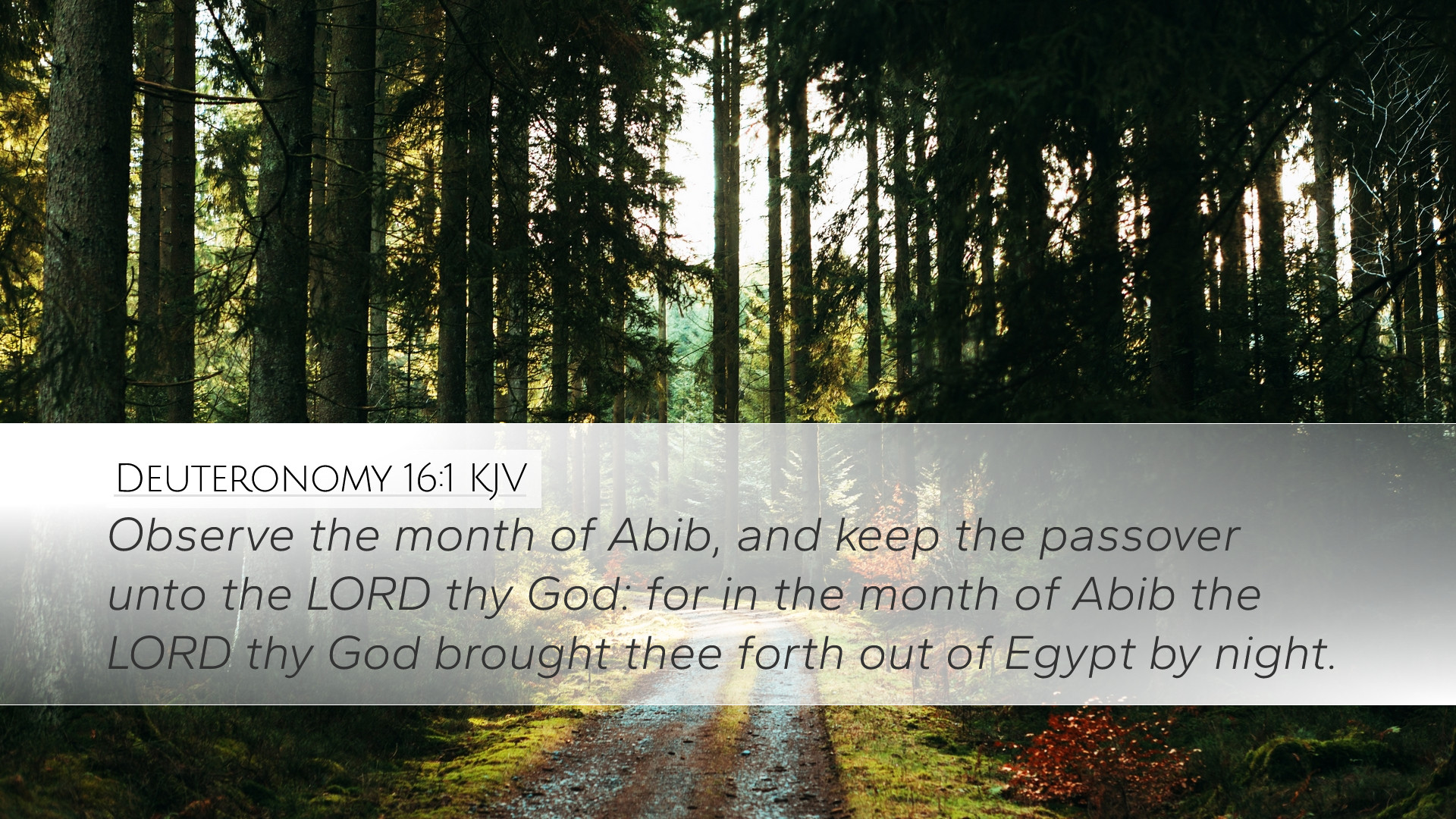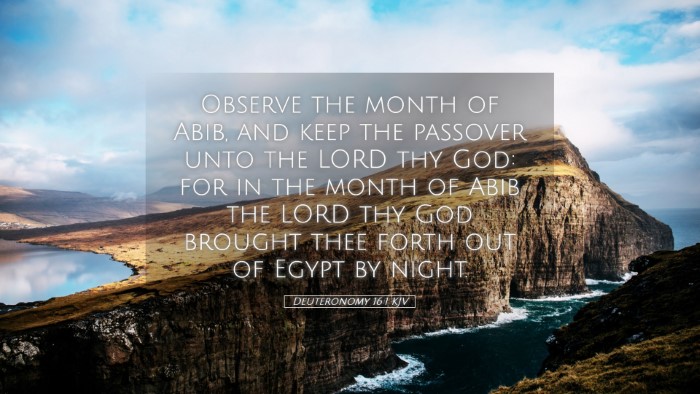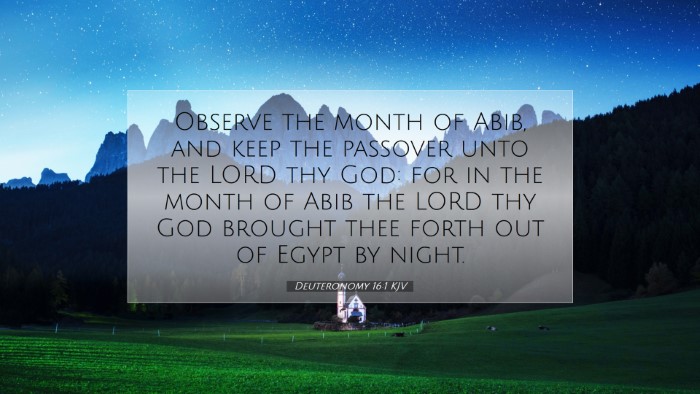Commentary on Deuteronomy 16:1
Verse: "Observe the month of Abib, and keep the passover unto the LORD thy God: for in the month of Abib the LORD thy God brought thee forth out of Egypt by night."
Introduction
This passage is a crucial command concerning the observance of the Passover, rooted in God’s deliverance of Israel from Egyptian bondage. It signifies remembrance and obedience, foundational themes in the relationship between God and His people.
Insights from Matthew Henry
Matthew Henry underscores the importance of the month of Abib, noting that it marks the beginning of the religious calendar for the Israelites. He states that the Passover is a memorial of God’s sovereign intervention in delivering His people.
- Significance of Abib: This month is synonymous with spring and renewal, representing the rebirth of the nation of Israel.
- Observance of the Passover: Henry emphasizes that the Passover is not merely a ritualistic practice but a heartfelt observance that requires reflection on divine mercy.
- Historical Context: He highlights how the Passover was instituted for the education of future generations, ensuring that they would remember their heritage and the grace of God.
Insights from Albert Barnes
Albert Barnes provides a detailed explanation regarding the timing and significance of the Passover. He elaborates on various elements surrounding the feasts and their societal implications.
- Month of Abib and Timing: Barnes explains that ‘Abib’ corresponds with the Hebrew calendar's notion of spring, an appropriate time for liberation and new beginnings.
- Divine Command: He stresses the importance of obedience to God’s commandments as a reflection of faith, marking the Passover as a pivotal act of worship.
- Family and Community: Barnes notes that the celebration serves to unite families and the community, fostering a collective memory that strengthens cultural identity.
Insights from Adam Clarke
Adam Clarke’s perspective includes linguistic and historical analysis, offering depth to the observance of Passover as seen in Deuteronomy 16:1.
- Language and Meaning: Clarke provides insights into the Hebrew terminology, emphasizing that "observe" indicates a strict adherence to the ritual with an understanding of its significance.
- Historical Contextualization: He connects the observance of Passover to the overarching narrative of redemption, linking it to Christ’s sacrifice as the ultimate Passover Lamb, which is significant for Christian theology.
- Eschatological Implications: Clarke draws parallels to future prophetic fulfillments, suggesting that understanding the Passover lays a foundation for comprehending the New Testament’s fulfillment of these traditions.
Thematic Reflections
Combining insights from these esteemed commentaries, several themes emerge that can meaningfully inform pastors, students, theologians, and Bible scholars.
- Remembrance: The directive to keep the Passover emphasizes the need for remembrance of God’s acts of salvation and deliverance in our lives.
- Obedience: The observance is presented as both a command and an invitation to engage with God's covenant, reinforcing faithfulness in worship practices.
- Cultural Identity: The Passover serves as a cultural touchstone for the Israelites, and understanding this can inform discussions on identity within a modern context.
- Christological Lens: For Christians, the Passover is seen through the lens of Christ's sacrifice, and the observance challenges believers to reflect on their own experiences of redemption.
Conclusion
Deuteronomy 16:1 is not simply a historical command; it encapsulates themes of remembrance, obedience, and the ongoing relevance of God’s deliverance. For today's scholars and clergy, this passage beckons a deeper exploration into how the implications of the Passover resonate in contemporary faith practices and theological discourse.


